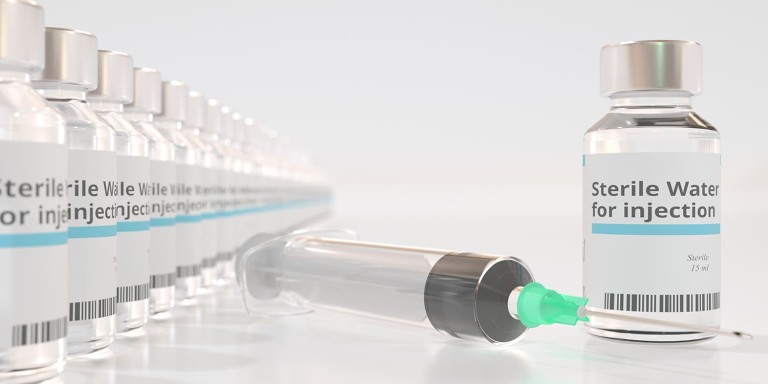
Life as we know it on Earth would not exist without water. Not only is it one of the critical building blocks that make up the cellular structure of all living things, but it also serves virtually limitless purposes for ensuring we remain in good health. One of the most important but underappreciated functions that water serves is to carry life-saving medicines into the body. Whether in the form of an injection or through intravenous mediums, water is used to create solutions that enable human cells to absorb and process drugs. However, the water that is used in these applications is much different from what comes out of a tap in our homes.
In order to create the safest possible conditions for administering medications, the water used in these processes must be purified to a degree beyond what is considered safe for human consumption. This is referred to as water for injection (WFI), and its importance in the medical realm is underscored by the fact that the World Health Organization includes it on its Model List of Essential Medicines. Understanding the differences between it and ordinary drinking water as well as other types used in medical applications is crucial for appreciating its importance in healthcare. Read on to learn more about this critical component of modern medicine.
The Basics on WFI
First of all, it is necessary to clear up some terminology that may be confusing to those without experience in these procedures. If you spend any time looking into the subject, you will encounter the terms “water for injection,” “sterilized water for injection” and “bacteriostatic water.” Although these terms may sound similar, they refer to different applications.
Understanding the Differences
What is sterile water for injection? This refers to water used to dissolve or dilute a substance or preparation to be administered via injection or other intravenous methods. It differs from WFI because it has gone through an additional sterilization process. Standard WFI is often used to manufacture drugs, with the sterilizing taking place later in production.
What is bacteriostatic water for injection? This describes WFI that has been treated with additional antimicrobial preservatives. It is used primarily to dilute sterile pharmaceuticals. Although WFI is the base product from which these other varieties are derived, they are not meant to be used interchangeably. Each serves a unique function with different standards for purity.
What is Water For Injection Used For?
As described above, WFI is a form of sterile water used to deliver medications or drugs to patients intravenously. In addition to making solutions, it also is used as a cleaning agent. Because of its extensively purified nature, it is utilized to cleanse anything that will come into contact with the drug. This includes any vials, caps, stoppers, ampules and especially the equipment used to process and store the pharmaceuticals.
How is WFI Produced?
It should come as no surprise that producing WFI is an complex, meticulous process. First, water must go through a pre-filtration procedure that involves softening, dechlorination and deionization. During this stage, it also goes through reverse osmosis and UV disinfection. Once this is completed, it undergoes a distillation process. This is accomplished using either vapor compression or multiple effect distilling.
Why Purity Matters for WFI
All of these steps are taken to ensure that the resulting fluids are not contaminated by the bacteria and organic carbons found in everyday water. The specifications for WFI are stricter even than those for purified water. The United States Pharmacopeia sets the standards at less than 10 CFU per 100 milliliters of aerobic bacteria, less than 500 parts per billion of total organic carbon and fewer than 0.25 EU per milliliter of endotoxins. The resulting product is used by pharmaceutical manufacturers as well as doctors and other healthcare providers.
Following these strict protocols is extremely important, as they prevent the risk of contamination. Any bacteria or other organic compounds that find their way into the resulting preparations could put patients in danger of infections or reduce the efficacy of the pharmaceuticals being produced.
Why Trust Technical Safety Services?
No matter what it is used for, it is absolutely essential that WFI retains high standards for purity and cleanliness. As a leading provider of testing and certification for cleanrooms and other controlled environments, Technical Safety Services offers a comprehensive array of water system solutions for laboratories. These include solutions specifically designed for WFI as well as endotoxin testing.
These are far from the only capabilities we can provide, however. We also have a wide range of services that can benefit the pharmaceutical industry. In everything we do for our clients, we bring the same rigorous commitment to following the strictest protocols and providing the highest levels of quality. If you want to learn more about what we can do for your operations, reach out to us today.

